Transformational Climate Science at Exeter University
Posted on 17 June 2014 by Jim Hunt
This is a re-post from econnexus
Last week the University of Exeter hosted a two day conference organised in partnership with the Met Office and the University of Leeds, under the banner of "Transformational Climate Science". According to the conference's "About" page:
The world’s top climate change experts [met] in Exeter to present and critically reflect on the UN Intergovernmental Panel on Climate Change (IPCC)’s Fifth Assessment Report (AR5).
The Transformational Climate Science conference [saw] world-leading researchers using the IPCC report’s findings to explore the next steps for climate science research.
The report assesses scientific, technical, and socio-economic factors concerning climate change, its potential effects and the options for adaptation and mitigation.
Conference participants included leading UK and international contributors to the IPCC report, who [gave] policy and scientific perspectives on the cutting edge of science, social science, and science-policy interface.
All this was far too much for me to resist, so I attended the public forum on Thursday evening and the whole of the Friday session which covered the work of IPCC Working Group III on "the challenge of mitigation". I was wearing the hat (and badge) of a member of the local press:
Since I have a great professional interest in energy security and hence energy policy I was delighted to discover that Catherine Mitchell, who is Professor of Energy Policy at the University of Exeter, was on both panels. When I arrived on Thursday evening there was still time to look around some of the assorted exhibits outside the conference room itself. There I spotted Professor Tim Lenton who was in charge of the Exeter climate change MOOC that I signed up for earlier this year:
Tim was wearing a badge that said "I'm a climate researcher. Ask me anything!", so I asked him something!
Tim told me that the Exeter MOOC had gone even better than expected, with over 16,000 people signing up for the course out of which over 10% managed to complete it. Apparently this is well above the "industry average", so Tim was very pleased with how things had turned out.
Next I bumped into three more people wearing "Ask me anything!" badges. They were Tom, Steve and Chris, and I asked them about their own research:
We'd never met before but their faces were familiar to me since they were the ones asking Tim Lenton questions in many of the videos that constitute a large part of the Exeter climate change MOOC course materials. It turns out that Tom is researching "humans as a newly evolved but very significant element in the relationship between life and the Earth", Steve is looking at "the ecology and evolution of marine microbial systems, in particular the interactions and coevolution of bacteria and their viruses", whereas Chris is using computer modelling to investigate how to potentially get "early warning of environmental tipping points".
By now it was time for the evening's main event to start. I always try to sit at the front on such occasions, where this time I found myself sitting next to Professor Neil Adger. I was having a quick chat to him when he apologised for the fact that he had to go and stand at the front and introduce the forthcoming proceedings! Here's what the panel for the public forum looked like, and it seemed they would each have 7 minutes to present an overview of their specialist subject:
A video of the complete session is now available, so for now I'll concentrate on the question and answer session at the end. I had a couple of energy policy questions I wanted to ask Catherine, so I kept waving my arm in the air, but somehow I never managed to catch Peter Gibbs' eye. Somebody else did manage that tricky feat, and Peter described her as "the lady in the Green cardigan" when directing the microphone in her direction. She turned out to be Molly Scott Cato, the Green Party's lead candidate for the South West of England in the forthcoming European elections, who effectively asked one of my questions for me by suggesting that "if politicians aren't dealing with climate change perhaps we have the wrong politicians" and garnering a round of applause from the assembled throng as a result. Catherine didn't seem any keener on those politicians than Molly, saying that she had "very little faith in any governments" and "we really need a completely new way of thinking about [UK energy policy]".
The message was very clear that things are not moving fast enough if dangerous climate change is to be avoided. According to an article about the conference in The Western Morning News, Prof. Mitchell told them that:
Personally, I think the IPCC report shows how much mitigation we have to undertake if we are to meet the 2C target – in Britain we are nowhere near and we have to up our game.
The report shows that by 2030 globally we should be getting about 25% of our energy – for electricity, heat and transport – from low carbon sources but we have had a process in place since 1990 and we have only managed 3 to 4% so we are way off target.
The Government really has to start explaining, not in a scary way, what climate change means to people’s daily lives and manage that change.
There will be winners and losers – I would argue the Government spends too much time looking after the losers – the fossil fuel companies – rather than innovative new businesses.
Soon the Q&A session was over. Neil apologised for the fact that I hadn't got to pose a question to the panel. I thanked him but told him not to worry. I headed over to the table and asked Catherine some questions in person! More on that and Friday's events in my next post. Until then though, lots of the slides from the presentations on both days have already been made available.They should be required reading for every politician (and prospective politician) on the planet!
View the slides from Thursday's presentations.
View the slides from the public forum on Thursday evening.
View the slides from Friday's presentations.
Should said politicians prefer watching videos to reading IPCC reports they could always try starting here instead:
P.S. Some alternative interpretations of the Transformational Climate Science conference are now available at:
Simple Climate – IPCC: Millions of words on climate change are not enough
The Exeter Blog – Transformational Climate Science
Angus Ferraro – Transformational Climate Science – meeting report et seq.































 Arguments
Arguments





















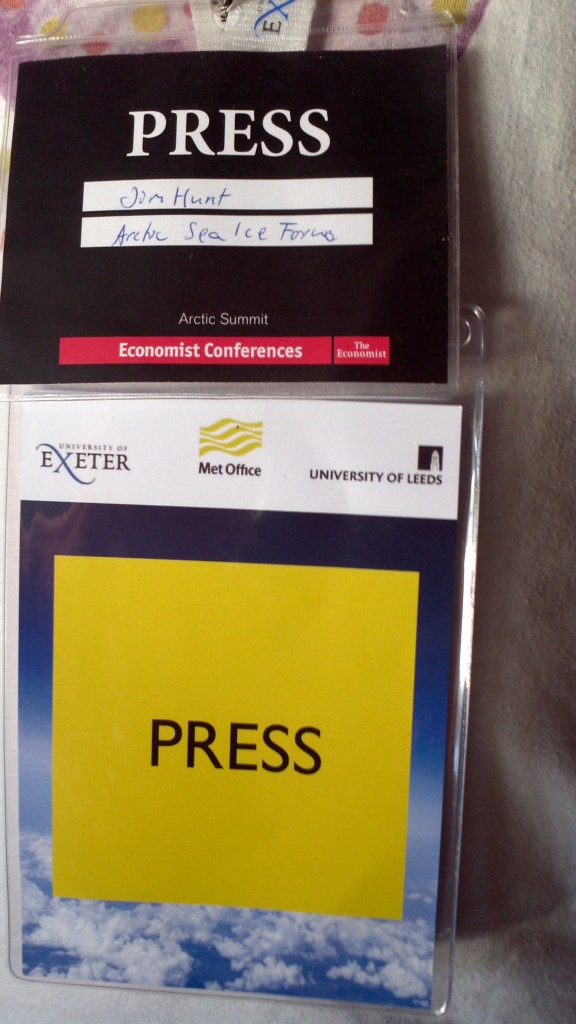
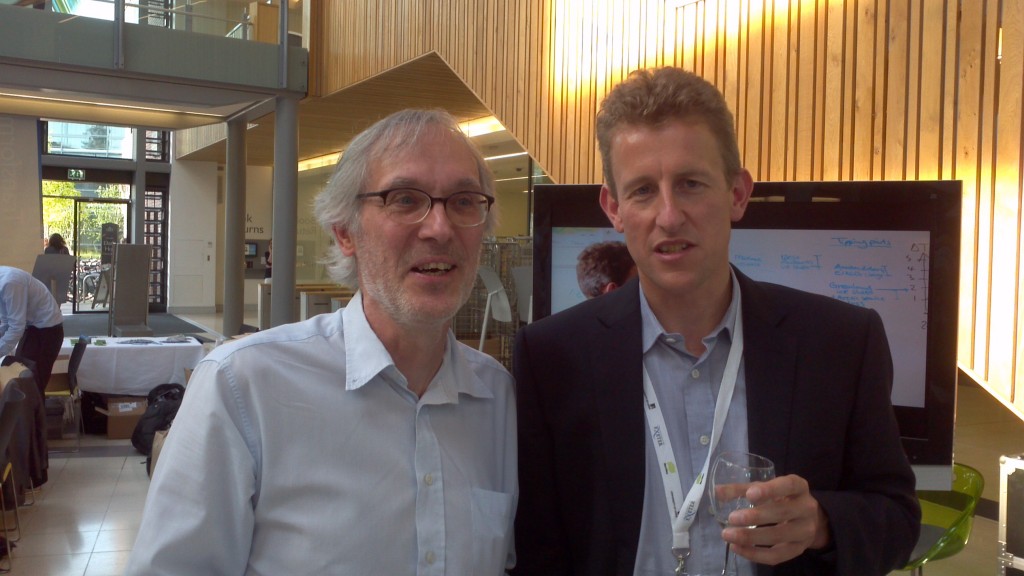
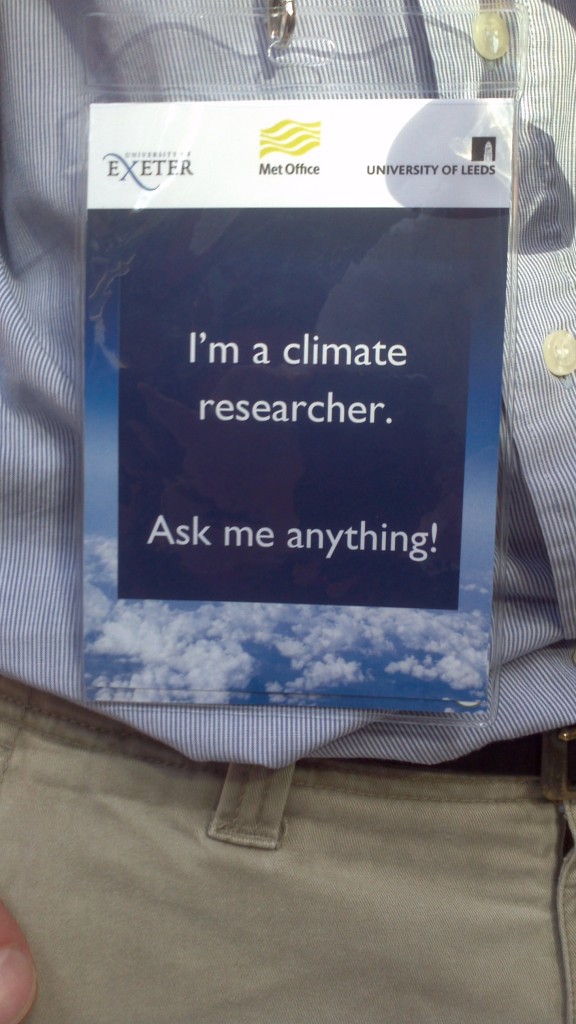
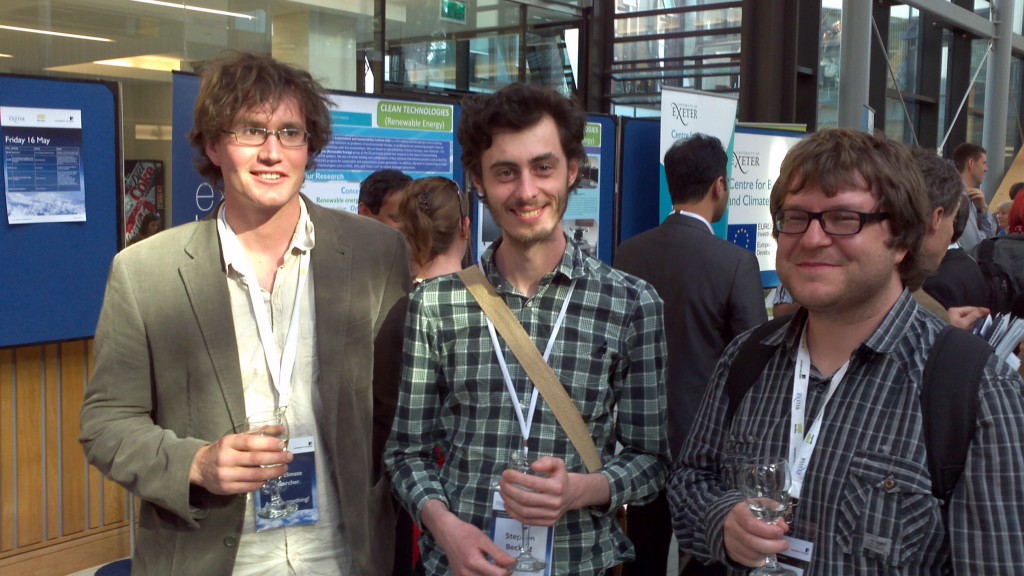
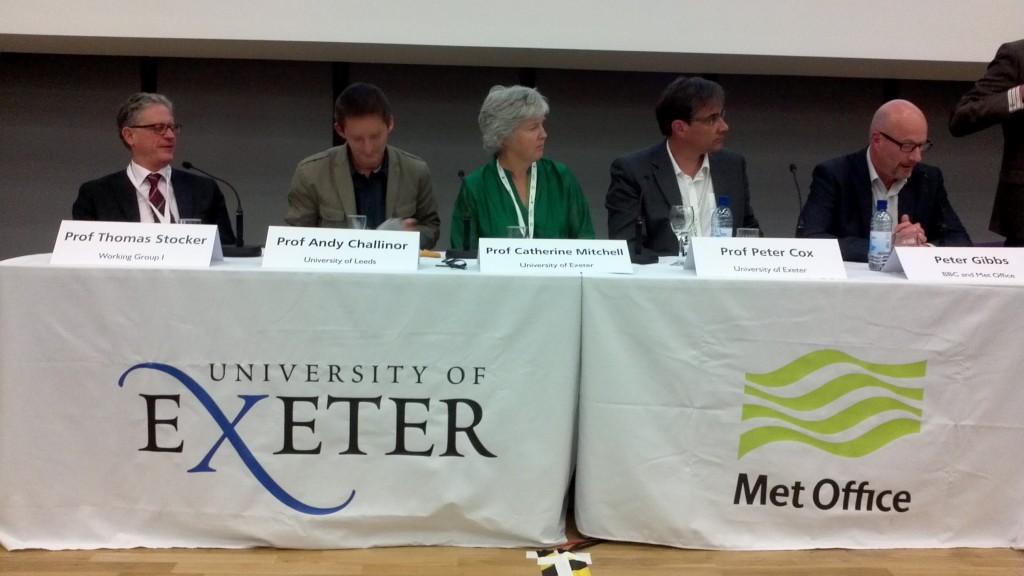









Thanks for the links. One point: I'm now using the term Anthropogenic Climate Disruption... or simply Climate Disruption... rather than climate change. It makes the human element explicit in the terminology...
AuntSally,
ACD is an interesting and sound term. I wonder who and when invented it. Using google, I was able to trace it to no earlier than Dahr Jamail in Truthout in April 2014, so very recent. Anyone can find earlier origin?
@ chriskoz, a very likely source is a comment under a September 21, 2010 post by Joe Romm, where he discusses the term "global climatic disruption" used in a June 1997 statement letter signed by John Holdren and 2414 other scientists.
http://thinkprogress.org/climate/2010/09/21/206755/climate-disruption-caused-by-global-warming-driven-by-human-emissions-of-greenhouse-gases/
I really should add the following clarification from Professor Catherine Mitchell, to clear up any possible confusion. Regarding UK low carbon energy generation she points out that:
@All - By all means discuss such matters here, but it seems appropriate to point out that this discussion is currently ongoing over on the Arctic Sea Ice Forum:
"Climate Change Perceptions and Communications"
2C warming is mentioned. I understood it was qualified as 2C of warming by the end of the century. This is consistent with the view that warming will continue as long the atmospheric concentration level (currently 400 ppm) is so high that it continues to act (has Hansen termed it) as a blanket. Increased emissions into the oceans will not totally offset the continuing emissions from fossil fuel usage even when they are reduced by sounder energy policies. There is too much infrastructure committed to using fossil fuels for this rate of usage to decrease rapidly.
Anthropogenic Climate Disruption is a misleading term. The greenhouse gas emissions that are the major cause of climate disruption are due to the operation of technological systems (power stations, vehicles, etc.). There is a commitment for this infrastructure to continue to use fossil fuels as long as it exists. Humans have only made the decisions about the construction and operation of this infrastructure. They cannot decide to cancel that commitment!
denisaf, the fact that society has committed itself to a substantial degree to its infrastructure does not change the fact that it is anthropogenic climate disruption. I don't see how that argument means that Anrthopogenic Climate Disruption is a misleading term. The infrastructure is anthropogenic, any climate disruption that is caused by the infrastructure is likewise anthropogenic.
Whilst we're debating semantics I used the term "dangerous climate change" in the article because that's the phrase used by the UK Met Office, who were one of the organisers of the conference. See for example:
http://econnexus.org/can-global-warming-be-limited-to-two-degrees/
Didn't understand denisaf's comment...
I like "Dangerous Climate Change," too. Perhaps "Dangerous Climate Disruption," though the word "disruption" already connotes something unsettling, I think.
Denisaf, I'm not sure I understand your comment better than others but here my response to what I do understand from it:
Humans in the past decided to build and operates extensive infrastructure devoted to the use of horses for transportation, agriculture, war, etc. Did they "cancel" that commitment? Not specfically, but they found something better and moved on. In effect, that cancelled it. Humans will have to find better solutions again and move on again, or be set back quite a bit.
As for anthropogenic, it does not mean intentional, if that's what you were trying to say. Of course, it is unintentional only up to the point that humans become aware of all the consequences of their "commitment" to that infrastructure and then decide to keep up the commitment. We are there, so, as of right now, the disruption is both anthropogenic and intentional. With knowledge comes responsibility.